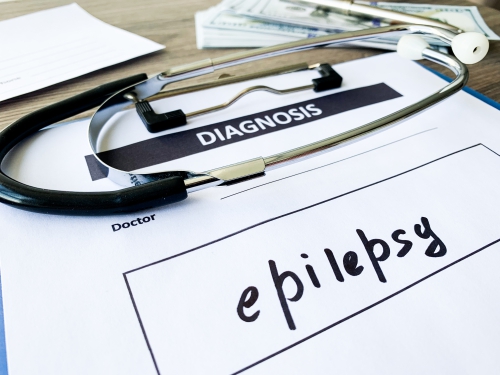Epilepsy, neurology, mental health
Description : Treatment of epilepsy is mostly medical in order to maintain a seizure-free state and in some cases
Article Details :
What is Epilepsy?
A seizure is when there a sudden uncontrolled electrical firing in your brain which results in abnormal behaviour, uncontrollable body movements and changes in the level of consciousness. Epilepsy on the other hand is a brain disorder characterized with an increased likelihood and predisposition to have recurrent seizures. Seizures can be due to several factors such as genetics, trauma to the head, strokes, substance abuse and other metabolic disturbances. However, epilepsy is most commonly unprovoked.
In your brain, there are several synchronised electrical signals that move in an organised fashion to perform specific tasks. In epilepsy, there is a disturbance in these signals, and depending on the location where it occurs in the brain, variable symptoms will arise.
It is estimated that around 50 million people around the world have epilepsy, hence one of the most common neurological disease worldwide. Further studies have shown that around 70% of people can live without any seizure if the diagnosis is made properly and appropriate treatment is initiated. It is a chronic non-communicable disease.
Treatment of epilepsy is mostly medical in order to maintain a seizure-free state and in some cases the treatment may be discontinued depending on the person’s response. Surgery is a treatment of last resort if the person is not responding to medications.
Causes and risk factors
In most of the cases, the exact cause of epilepsy is unknown. However, in certain cases, some causes may be found.
The following can cause or increase your risk of having epilepsy and seizures:
- Brain malformations at birth: Malformations in the brain structure or damage to the brain during birth
- Infections: such as meningitis or viral infections of the brain or spinal cord
- Trauma to the head: following an accident, fall or other trauma
- Stroke: Due to the lack of proper blood circulation through certain areas of your brain following a stroke, the damaged brain tissue can trigger epilepsy.
- Brain tumours: brain tumours can impair proper flow of electrical signals in your brain hence triggering epilepsy.
- Inherited genes: if you have a family history of epilepsy, you are also at increased risk of having it as you may have certain genes associated with the disease.
- Illicit drug abuse: Drug abuse can alter normal brain’s functions and predispose you to epilepsy.
- Decreased blood sugar levels: With low amount of sugar in your blood, your brain cells are unable to perform their task properly, hence leading to abnormal electrical firing.
- Withdrawal from alcohol or drug abuse: this is due to imbalances in the essential hormones in your brain caused by the abrupt withdrawal from alcohol or other drugs.
The causes vary with age. For example, stroke is the most common cause among elderly people while head trauma and illicit drug abuse occur more frequently among younger people.
Signs and symptoms of Epilepsy
As mentioned earlier, the signs and symptoms of epilepsy depend on the type of epilepsy present and the site affected in the brain. Different types of seizure can present with a variety of signs and symptoms.
Types of seizures
There are several types of seizures identified and each present with different signs and symptoms, namely:
Focal seizures
Focal seizures occur when the abnormal electrical signals originate from a single area in the brain. This category can further be classified into:
- Focal seizures with preserved awareness: In this type of seizure, symptoms manifest as movement or sensory abnormalities, however the person is fully aware of the surroundings. These are also known as simple focal seizures.
- Focal seizures with impaired level of consciousness: These are also known as complex partial seizures. In these seizures, the person presents with movement or other abnormalities along with decreased or loss of consciousness.
Generalised seizures
This type of seizure occurs when abnormal electrical signals are present in the whole brain. This can be classified into the following subtypes:
- Absence seizures: This is a common type of seizure among children where they are found to stare into space with possible association with eye blinking or lip smacking. The consciousness is impaired during this period and it is usually brief.
- Tonic seizures: In this type, the muscles of your body become stiff and this may lead to falls.
- Atonic seizures: In this type of seizure, there is a complete loss in muscle control which causes the person to suddenly collapse and fall down.
- Clonic seizures: This is characterized by repeated jerking movements of your muscles.
- Myoclonic seizures: This presents as brief jerking movements or muscle twitches of your limbs.
- Tonic-clonic seizures: This type of seizure manifest as with loss of Read more













